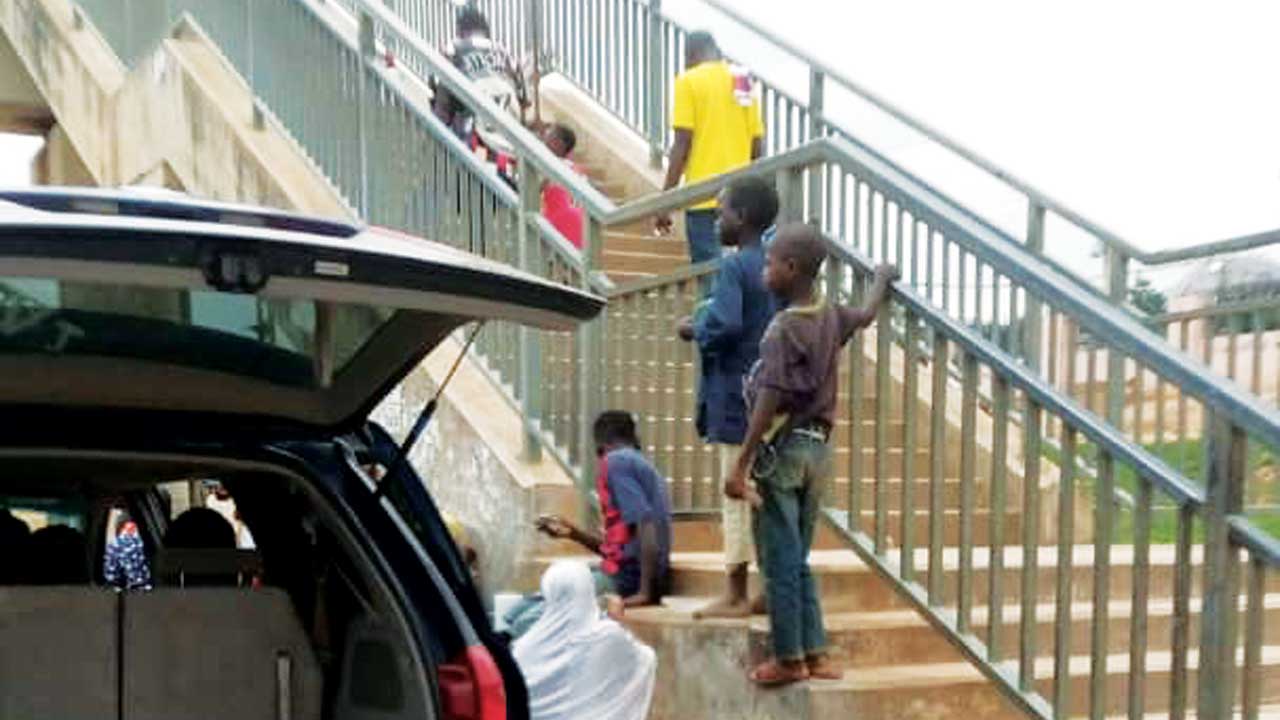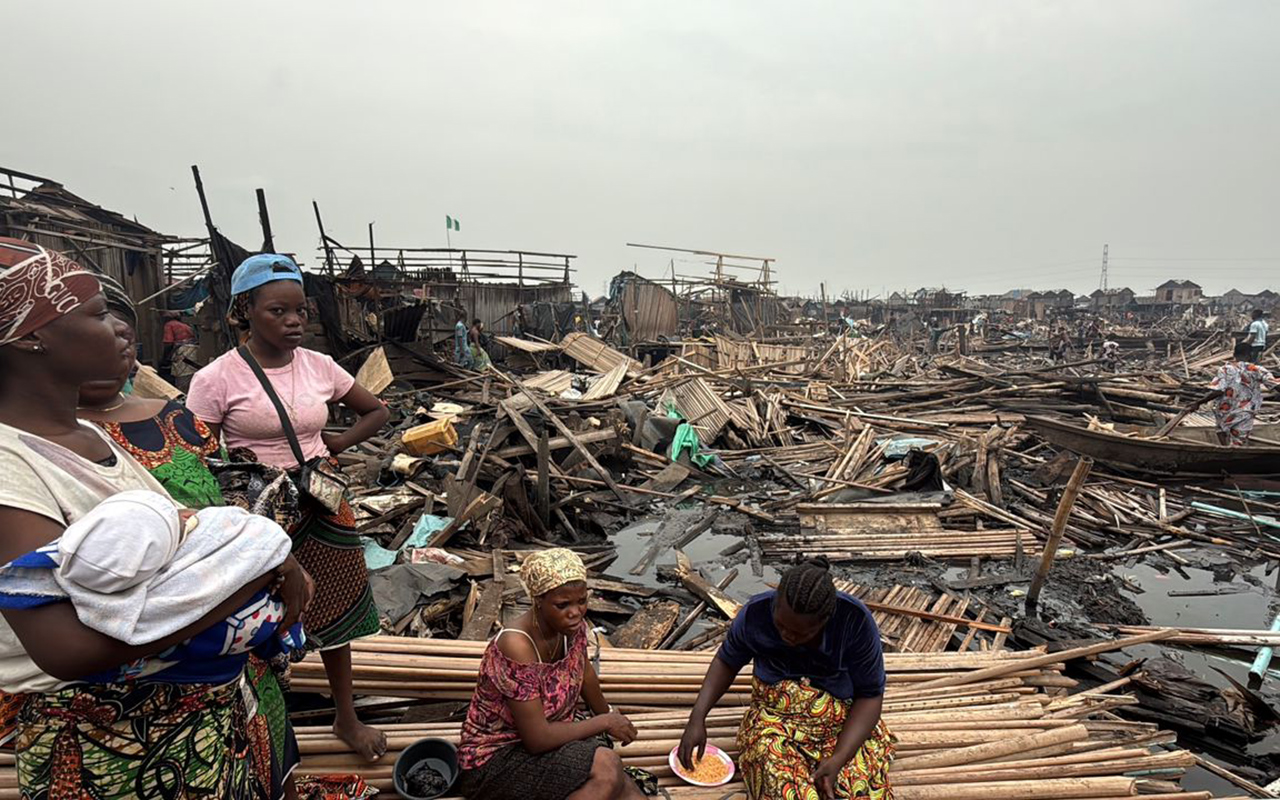
These children are seen every day carrying plates and begging for alms from passengers on commercial vehicles at junctions within Kubwa, Dawaki, Galadima, Gwarimpa, Bwari, Dutse and the city centres, like Wuse, and Garki.
Some residents linked the situation to the rise of insecurity in northern states, while others believe it was caused by polygamy and irresponsibility on the part of parents, who care less about the well being of their children.
They lamented that the disturbing trend not only affects Abuja’s aesthetics, it increases petty crimes in both the city centre and satellite towns.
One of the street children, Ibrahim Aliyu, 10, narrated how he found himself on the streets of Abuja.
The teenager, who always hangs around supermarkets in Kubwa, said: “There were more than 30 of us, who came from Katsina. We came in by hanging behind trucks conveying grains to Abuja. My parents don’t have money, so I came here to beg.”
Also, 11-year-old, Musa Bala, who hails from Dutse, said he escaped from the Internally Displaced Persons (IDPs) camp in Zamfara.
He said: “I am from Zamfara, I left the camp in Gummi after our village was attacked and we were forced to leave. Begging here in Dutse market is more profitable than staying in the training school at Dawaki, no adequate feeding for all of us in the school.”
Damaraya Idris, 10, in Dawaki, said he was one of 60 children apprehended by the Social Welfare Department of the Federal Capital Territory Administration (FCTA), but he left the school to be on the street.
He said: “In Islamia, we are not allowed to go outside and make money. I had to find an escape route. My father chased us out of the house in Kano, and my four brothers went to fend for themselves.”
Another child, in Bwari, who simply identified himself as Abubakar, said: “I am from Jigawa. I don’t know my age. A relative took us away from our parents with a promise of taking us to school, but when we came to Abuja we were subjected to begging.”
But speaking on the adverse effect of the rising trend, Sarah Adeniyi, a trader in Kubwa, said: “At about 2005 and 2006, there was a surge like this, but the street children were foreigners from neighbouring countries.
“It was well handled by the administration then. These children are exposed to the harshness of the environment, which in all sense has a detrimental effect on their health and could make them violent. These kids were stationed at the NNPC junction and along Automated Teller Machine (ATM) and supermarkets, rushing to beg. It is an emergency.”
A school proprietor, Akan Kufre, lamented the government’s refusal to create a system of education that carries them along.
He said: ” These children should not be integrated into an educational system far ahead of them. That is the reason they don’t find education interesting enough. Government should explore other informal means of arresting their minds with a system of education that is very inclusive.”
Also, a clergyman, Ejike Alfredo, urged residents to assist the street children rather than judging them.
“My church has a welfare committee that is committed to clothing and feeding these children. We’re currently working on having a home, where these children can stay safely. The government alone does not build a thriving society. All hands must be on the plough,” he said.
On the security implications of the street children, a security expert and managing partner at Nextier, Dr. Ndu Nwokolo, told The Guardian that there are both humanitarian and security dimensions to the menace.
He said: “The nature of their situation both in their previous abode and here in Abuja, makes them vulnerable. Apart from this situation, some of them are speculated to be informants to groups and from research and experience of the Boko Haram attacks in the north east, they were used by non-state armed groups in gathering information.”
On steps government should take to handle the situation, he said: “Government should, as a matter of urgency, mop them up and move them to a camp where adequate care and education should be provided for them.
“Incidentally, they form the critical mass of the out-of -school children, so, the Ministries and Departments in charge should consider working with Civil Society Organisations (CSOs) and other development agencies like the United Nations Children’s Fund (UNICEF) in dealing with the issue.
“Again, without profiling them, they should be interviewed and a form of psychosocial support provided for them, especially for those who have witnessed violent conflicts or engaged in such in the past.
“For those who are linked to any insurgent group, it will be good to start deradicalisation of the children. Most residential areas in Abuja now have a kind of neighbourhood watch association, this should be used to monitor them, but most importantly, they should work with people and the FCT authorities in moving them to where they should be adequately cared for.”
Meanwhile, the Director of Social Welfare Services of the Federal Capital Territory Administration, Dr. Sani Amar Rabe, said the FCTA is working to put a permanent stop to the rising trend.
According to him, many of the street children are not from Abuja.
“They are coming from the neighbouring states, recently we apprehended more than 90. About 60 claimed to come from Kaduna on reaching Kaduna, we discovered that it was all lies.
“Some claimed that they are from Zamfara, but none of them know where they are coming from. That is one huge challenge that we are having. It is erroneous for anybody to assume FCTA is not doing enough. The limitation of the budgetary provision is one of the challenges.”
Members of the public are good at criticising rather than contributing to assisting the government. They should get more involved. These street children can be very wild, and corrupted, but they also have a future. Everybody’s hands should be on the plough.”






